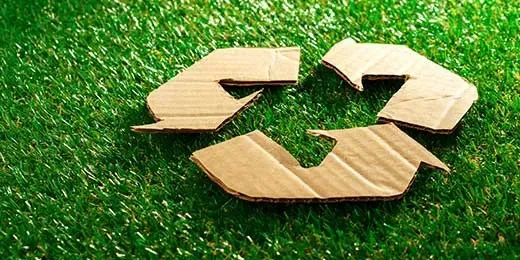Hyundai Motorstudio Senayan Park
Hyundai Motorstudio Senayan Park
Newsroom
The official news from Hyundai Motorstudio Senayan Park and a collection of innovative articles on mobility and sustainability here.
-
Understanding the Concept of Recycling and Why Should We Recycle
- Hyundai Motorstudio Senayan Park Senayan Park 2022.05.17
-
Meaning of recycling is a process to return waste or materials that are not useful to be useful again. Recycling is one of the solid waste management strategies which consists of sorting, collecting, processing, distributing and manufacturing used products/materials, and is the main component in modern waste management and the third part in the 4R waste hierarchy process (Reduce, Reuse, Recycle, and Replace).
The Meaning of Recycling for a Better Human Life
Until now, Indonesia seems to still face big challenges in terms of waste management. If you pay attention to your surroundings, the volume of waste generated is increasing day by day. Unfortunately, most of the waste produced is inorganic waste that does not decompose easily, such as plastic and glass.One solution that we can do to reduce the volume of waste is recycling. Recycling is one way to modify waste or used goods into new goods that are useful and have economic value. There are many types of waste that you can recycle, such as used plastic, used bottles, used paper and much more.Benefits of Recycling for a Better Human Life
Here are 5 benefits that you can get if you want to recycle trash or used goods!1. Reduce pollution from waste, save energy, and protect natural resources
Doing recycling means you have contributed to environmental sustainability. Instead of throwing away and causing environmental pollution, you can turn trash or used goods into useful new creations.Recycling waste also means you save natural resources. By recycling paper, for example, you have indirectly contributed to reducing the number of trees that have to be cut down in the forest to make pulp. In addition, the production process from recycled materials requires less energy than using raw materials. This is why the meaning of recycling should be understood by everybody.2. Preventing disease around us
Piles of garbage have the potential to become a hotbed of disease. By recycling waste, the pile of garbage can be reduced. The environment becomes cleaner and can prevent you from the threat of various diseases.3. Increase knowledge and hone creativity
Meaning of recycling is honing your creativity. You can continue to be creative and innovate to find new ideas to make interesting products from waste or used goods. On the internet, in magazines, or in books, there are lots of DIY (Do It Yourself) projects that you can develop yourself.In addition to creativity, it is not impossible that your knowledge will increase over time. For example, you will know which types of waste you can turn into useful products and have high economic value.4. Save expenses
By making and using recycled products from waste or used goods, this means you save on your expenses. If you already have a pencil holder from an old tin, why buy a new pencil case at the store?5. Increasing income
Apart from saving money, recycling trash or used items can even be profitable! With your creativity, you can make recycled products that have economic value and can be traded, such as bags from plastic waste. You can also generate additional income.6. Landfill Waste Reduction
The most obvious benefit of recycling is the reduced waste in landfills. One of the main benefits of recycling, on a personal to regional scale, is that it helps reduce the amount of waste that breeds in landfill waste service centers.As a result, the risk of leakage of natural gas, toxic chemicals and other harmful substances into local ecosystems is reduced. Ensuring that the local environment is kept clean and safe for those living near a nuisance landfill is extremely important.7. Helping Conservation of Natural Resources
The benefits of recycling, on a national and international scale, help improve the lives and habitats of local communities and wildlife by reducing the amount of wood, water and minerals used in the manufacturing process.Forests are not cut down to provide new paper when recycled paper is used instead, and tree replanting is encouraged in areas that previously provided paper sources.Well, those were some of the benefits that you will feel if you want to recycle your trash or used goods. In addition to environmental benefits, it turns out that recycling also provides health and financial benefits. So, you are still hesitant to recycle trash or used items in your daily life.In a world where we are faced with dwindling natural resources, overflowing landfills and plastic in our oceans, recycling has almost become a habit.Recycling is actually an important part of everyday life, and leaders from around the world are pooling resources to find new and innovative ways to take recycling to new levels. From the individual level to businesses, industries, and even entire nations, there are countless high-value environmental benefits that come from recycling.Simply put, recycling is one of the most effective ways to protect and preserve the nature in which we live. By reusing old materials, we save the energy needed to make new ones.




